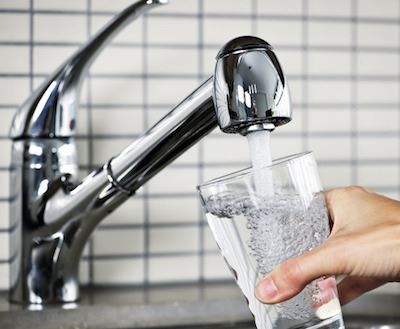Have you noticed it’s taking longer for the hot water to reach your fixture? There are a number of factors that could be slowing up the process of hot water traveling from your water heater to the fixture.
The most obvious is the distance. Water is heated in your water heater and travels up to your fixture when you turn the hot water on. The longer the distance, the longer it takes.
It also depends on what kind of pipe is used in your plumbing system. Is it galvanized iron pipe? Copper pipe? Copper tubing? Plastic pipe? Or maybe some kind of plastic tubing? Since the material the pipe is made out of can absorb heat, it can impact how long water stays warm in the system and how often you use it. It also depends on things like how well the piping is insulated, and the ambient temperature around the pipes.
The type of water heater also comes into play. A tank water heater has a tank full of hot water waiting to fill your pipes. It’s just a matter of calling it by turning the fixture on, starting the process of sending the heated water to your final destination.
A tankless water heater has first to heat the water before it can send it to you. However, one in motion, the supply of hot water is limitless, which can be very enticing if you’re standing in a hot shower on a cold, winter morning.
https://www.rsandrews.com/how-do-tankless-water-heaters-work
Pipe diameter will also make a difference. A gallon of water will travel differently through a one inch pipe as compared to a half-inch pipe. That same gallon of water will also travel differently through PVC as compared with galvanized iron pipe. But in general, the smaller the diameter of the pipe, the faster the hot water will reach the fixture. That’s because certain piping materials have thicker walls than other types of piping.
Galvanized pipe has a thicker wall than copper pipe and absorbs more heat energy from hot water as it flows through it. So it will take longer for water to travel through galvanized pipe than if you had copper pipe of the same length and distance.
Seasonal variations also play a role. In the winter, it will take longer for water to flow than in the summer because of ambient temperature. The colder the temperature, the more heat the pipe will suck out of the water supply. That means the water flow will take longer to warm up. Insulating the pipes does help a little.
Looking for instant hot water no matter when you call it? One option is to install an on-demand hot water system. A circulating system is installed to bring the cold water back into the water heater. A pump turns on and circulates the water through the piping until the hot water reaches the pump. It shuts off to prevent filling the cold water lines with hot water.
It’s the best way to have instant hot water when you turn on the tap or shower, and you don’t want to waste water and send it down the drain.
How can we help you with your hot water needs?

